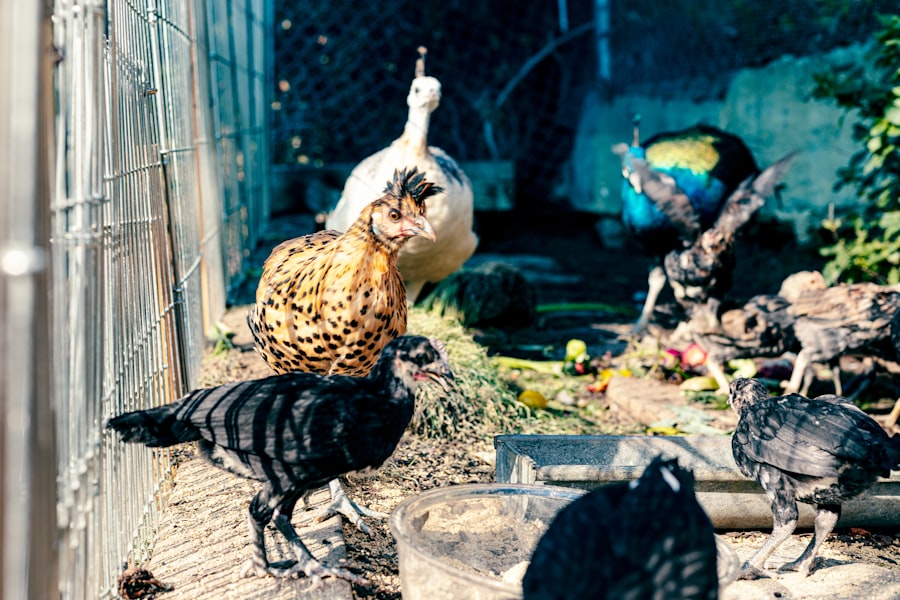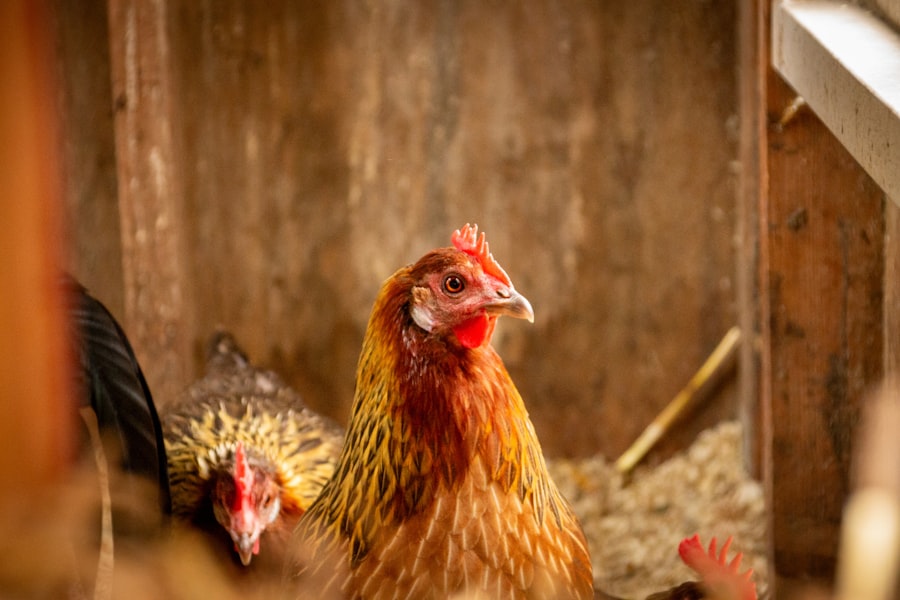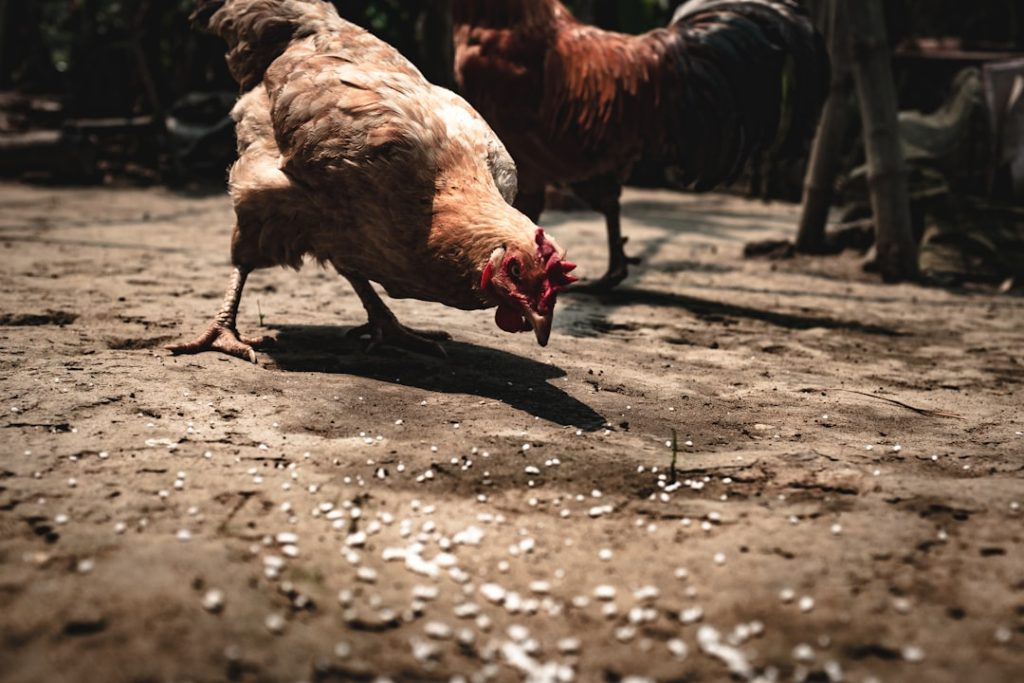Raising new chickens is a process that requires careful planning and attention to detail. Whether starting a small backyard flock or expanding an existing one, understanding the proper care and management of young chickens is crucial for their health and productivity. Key aspects of raising new chickens include selecting appropriate breeds, providing suitable housing, and ensuring proper nutrition.
One important consideration when raising new chickens is the duration of their confinement in the coop. This initial period of restricted movement serves several purposes, including allowing the birds to acclimate to their new environment, protecting them from potential predators, and preventing the spread of diseases. The length of confinement can vary depending on factors such as the age of the chickens, weather conditions, and the presence of existing flock members.
Proper management during this confinement period is essential for the chickens’ development and future integration into the flock. Monitoring their health, providing appropriate feed and water, and gradually introducing them to the outside environment are all critical steps in the process. By following best practices for raising new chickens, poultry keepers can ensure a healthy start for their birds and promote long-term productivity within their flock.
Table of Contents
- 1 The Importance of Keeping New Chickens in the Coop
- 2 Factors to Consider When Determining How Long to Keep New Chickens in the Coop
- 3 Recommended Timeframe for Keeping New Chickens in the Coop
- 4 Signs that New Chickens are Ready to Leave the Coop
- 5 Tips for Introducing New Chickens to the Outside Environment
- 6 Conclusion and Final Thoughts on Keeping New Chickens in the Coop
- 7 FAQs
- 7.1 What is the recommended time to keep new chickens in the coop?
- 7.2 Why is it important to keep new chickens in the coop for a certain period of time?
- 7.3 What are some signs that new chickens are ready to be let out of the coop?
- 7.4 How can I ensure a smooth transition for new chickens when introducing them to the coop?
Key Takeaways
- Introducing new chickens to your flock can be an exciting and rewarding experience for poultry enthusiasts.
- Keeping new chickens in the coop is important to ensure their safety and to allow them to acclimate to their new environment.
- Factors to consider when determining how long to keep new chickens in the coop include their age, health, and the existing flock dynamics.
- It is recommended to keep new chickens in the coop for at least 2-4 weeks to allow them to establish their pecking order and become familiar with their surroundings.
- Signs that new chickens are ready to leave the coop include confident behavior, established hierarchy, and a healthy appearance.
The Importance of Keeping New Chickens in the Coop
Reducing Stress and Anxiety
This helps to reduce stress and anxiety, which can impact their health and productivity. Furthermore, keeping new chickens in the coop allows you to monitor their behavior, health, and development more closely.
Early Identification of Potential Issues
By observing them in a controlled environment, you can identify any potential issues or concerns early on and take appropriate measures to address them. This can help prevent the spread of diseases, injuries, or other problems that may arise when new chickens are exposed to the outside environment too soon.
Successful Integration into the Flock
Overall, keeping new chickens in the coop is crucial for their safety, well-being, and successful integration into your flock.
Factors to Consider When Determining How Long to Keep New Chickens in the Coop

When determining how long to keep new chickens in the coop, there are several factors to consider. The age of the chickens, their breed, the time of year, and your specific circumstances all play a role in determining the appropriate timeframe for coop confinement. Younger chickens may require a longer period of time in the coop to develop their feathers and build up their strength before being introduced to the outside environment.
Additionally, certain breeds may be more sensitive to cold or hot weather, which can impact how long they should be kept in the coop. The time of year also plays a significant role in determining how long to keep new chickens in the coop. In colder climates, it may be necessary to keep them in the coop for a longer period of time to protect them from harsh winter conditions.
On the other hand, in warmer climates, new chickens may be ready to leave the coop sooner and be introduced to the outside environment. Your specific circumstances, such as the size of your coop, the availability of outdoor space, and your ability to supervise them outside, will also influence how long you should keep new chickens in the coop. By considering these factors, you can determine the most appropriate timeframe for coop confinement for your new chickens.
Recommended Timeframe for Keeping New Chickens in the Coop
The recommended timeframe for keeping new chickens in the coop varies depending on several factors. In general, it is advisable to keep them in the coop for at least 6-8 weeks before introducing them to the outside environment. This allows them to develop their feathers, build up their strength, and become familiar with their surroundings before being exposed to potential risks outside.
However, this timeframe may need to be adjusted based on the age of the chickens, their breed, the time of year, and your specific circumstances. For younger chickens, such as chicks or pullets, it is recommended to keep them in the coop for a longer period of time, typically 8-10 weeks. This allows them to fully develop their feathers and build up their strength before being introduced to the outside environment.
Additionally, certain breeds may require a longer period of time in the coop due to their sensitivity to cold or hot weather. In colder climates, it may be necessary to keep new chickens in the coop for up to 10 weeks or longer to protect them from harsh winter conditions. Ultimately, the recommended timeframe for keeping new chickens in the coop should be based on careful consideration of their age, breed, the time of year, and your specific circumstances.
Signs that New Chickens are Ready to Leave the Coop
There are several signs that indicate when new chickens are ready to leave the coop and be introduced to the outside environment. One of the most obvious signs is when they have fully developed feathers and are able to regulate their body temperature effectively. This indicates that they have reached a level of maturity and are better equipped to handle potential risks outside.
Additionally, if they are active, alert, and curious about their surroundings, it is a good indication that they are ready to explore beyond the confines of the coop. Another sign that new chickens are ready to leave the coop is when they are eating and drinking well and have established a routine. This indicates that they are comfortable and confident in their environment and are likely ready for new experiences outside.
Additionally, if they are showing signs of restlessness or frustration in the coop, it may be a sign that they are ready for more space and stimulation outside. By observing these signs and taking cues from their behavior and development, you can determine when new chickens are ready to leave the coop and be introduced to the outside environment.
Tips for Introducing New Chickens to the Outside Environment

Initial Introduction
When introducing new chickens to the outside environment, it is essential to do so gradually and with careful consideration of their needs. Start by allowing them supervised access to an enclosed outdoor area during mild weather conditions. This will give them an opportunity to explore and become familiar with their surroundings while still being protected from potential risks.
Increasing Outdoor Time
Gradually increase their outdoor time as they become more comfortable and confident outside. Provide plenty of hiding spots, perches, and enrichment activities in the outdoor area to encourage exploration and reduce stress. This will help them feel secure and stimulated while adjusting to their new environment.
Monitoring and Ensuring Safety
Additionally, monitor their behavior closely during outdoor time and be prepared to intervene if necessary to ensure their safety and well-being. By following these tips and taking a gradual approach to introducing new chickens to the outside environment, you can help them make a smooth transition from coop confinement to outdoor freedom.
Conclusion and Final Thoughts on Keeping New Chickens in the Coop
In conclusion, raising new chickens requires careful planning and consideration of their needs. Keeping new chickens in the coop is essential for their safety, well-being, and successful integration into your flock. When determining how long to keep new chickens in the coop, it is important to consider factors such as their age, breed, the time of year, and your specific circumstances.
The recommended timeframe for keeping new chickens in the coop varies based on these factors but generally ranges from 6-10 weeks. There are several signs that indicate when new chickens are ready to leave the coop and be introduced to the outside environment. By observing their behavior and development closely, you can determine when they are ready for this transition.
When introducing new chickens to the outside environment, it is important to do so gradually and with careful consideration of their needs. By following these best practices for keeping new chickens in the coop, you can ensure that they have a healthy start and will be productive members of your flock for years to come.
If you’re wondering how long you should keep new chickens in the coop, you may also be interested in learning about the benefits of providing a chicken coop trampoline. This article from Poultry Wizard discusses how adding a trampoline to your chicken coop can provide entertainment and exercise for your flock, leading to happier and healthier chickens. Check out the article here for more information.
FAQs
What is the recommended time to keep new chickens in the coop?
The recommended time to keep new chickens in the coop is typically 1-2 weeks. This allows them to acclimate to their new environment and become familiar with the coop before being allowed to free-range.
Why is it important to keep new chickens in the coop for a certain period of time?
Keeping new chickens in the coop for a period of time allows them to establish the coop as their home and become familiar with where they should roost and lay eggs. It also helps to prevent them from wandering off and getting lost or attacked by predators.
What are some signs that new chickens are ready to be let out of the coop?
Signs that new chickens are ready to be let out of the coop include them showing confidence in their surroundings, returning to the coop to roost at night, and laying eggs in the coop.
How can I ensure a smooth transition for new chickens when introducing them to the coop?
To ensure a smooth transition for new chickens, provide them with plenty of food and water in the coop, and gradually introduce them to the outdoor area by letting them out for short periods of time before allowing them to free-range full-time. Additionally, monitor their behavior and interactions with existing flock members to prevent any aggression or bullying.
Meet Walter, the feathered-friend fanatic of Florida! Nestled in the sunshine state, Walter struts through life with his feathered companions, clucking his way to happiness. With a coop that’s fancier than a five-star hotel, he’s the Don Juan of the chicken world. When he’s not teaching his hens to do the cha-cha, you’ll find him in a heated debate with his prized rooster, Sir Clucks-a-Lot. Walter’s poultry passion is no yolk; he’s the sunny-side-up guy you never knew you needed in your flock of friends!







